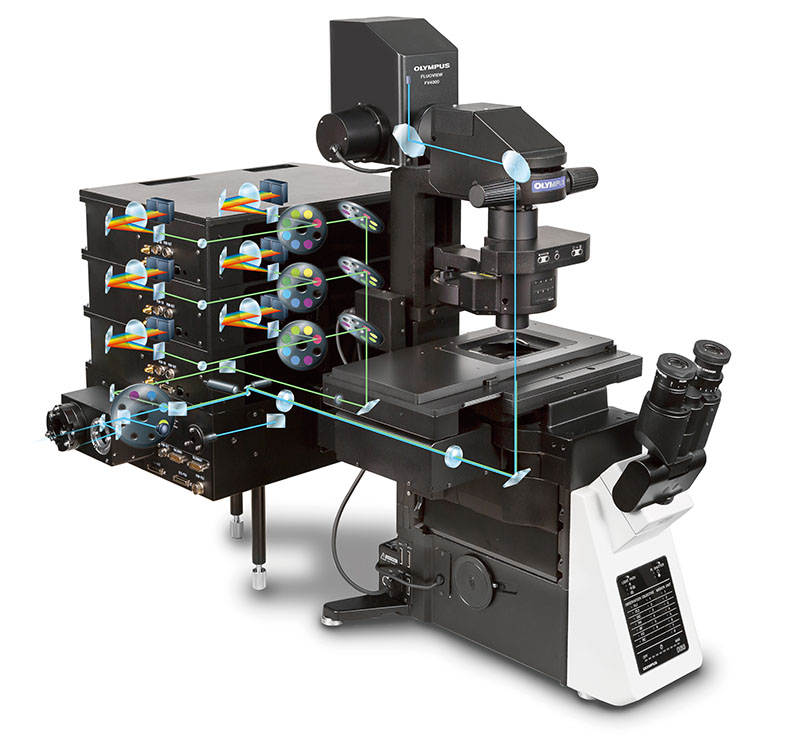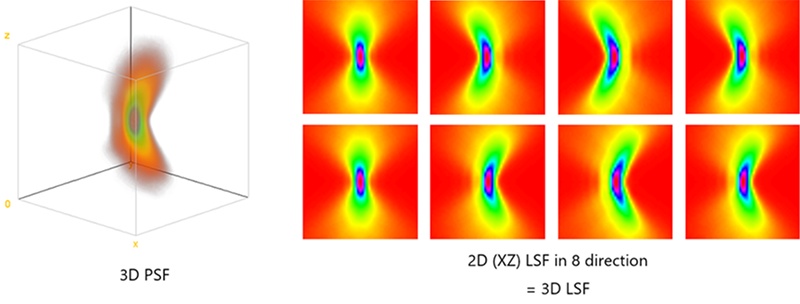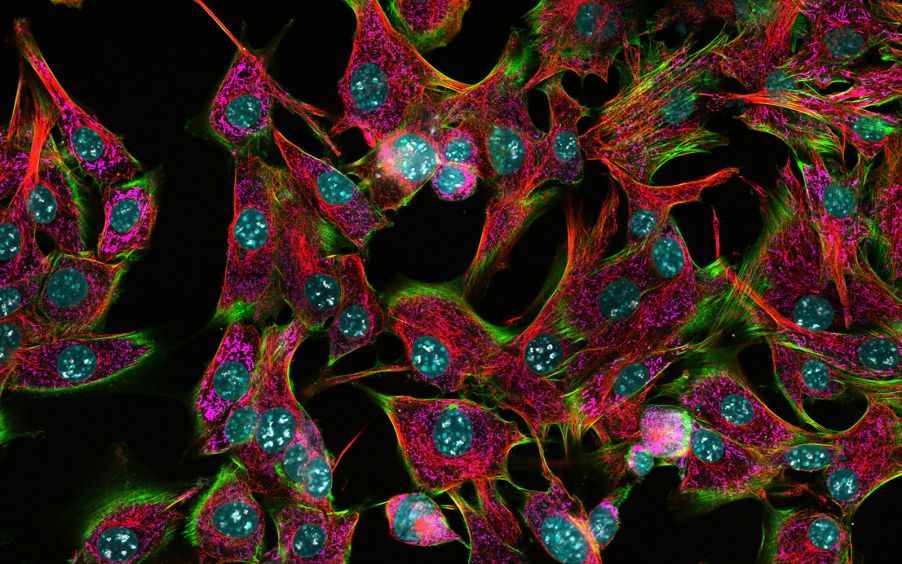In scientific research, the reliability of your tools is critical for obtaining reproducible results. Confocal microscopes, while powerful, require regular maintenance to ensure high-quality imaging. We created the Microscope Performance Monitor to help. Designed for the FV4000 confocal laser scanning
microscope, this innovative tool transforms how core facility managers and users maintain their equipment and ensure the accuracy of their quantitative fluorescence imaging.
The Challenges of Confocal Microscope Maintenance
Confocal microscopes are complex systems, so maintaining optimal performance can be a challenge. Factors such as fluctuations in laser power, changes in detection sensitivity, and variations in imaging performance can all impact the quality and reproducibility of results and can be difficult to detect without deep expertise in optical microscopy.
Regular maintenance is important, but it often requires specialized knowledge and can be time consuming. This is where the Microscope Performance Monitor comes in, providing a simple solution to these common challenges.
What Is the Microscope Performance Monitor?
Created for the FLUOVIEW FV4000 confocal microscope, the Microscope Performance Monitor is a game changer for core facility managers and researchers. The system monitors three key performance factors that are critical for fluorescence imaging: laser power, detection sensitivity, and imaging performance.
By automatically measuring these factors, the Microscope Performance Monitor helps you be sure that your FV4000 microscope is consistently delivering high-quality results.
Understanding Confocal Microscope Key Performance Factors
Laser Power
Laser power is crucial for proper sample illumination. However, factors like ambient temperature changes can cause fluctuations in laser output. The Microscope Performance Monitor measures laser power just after it enters the FV4000 system from the fiber output, enabling the software to compare the laser power to the value relative to when the microscope was first installed. If there’s a discrepancy, the Microscope Performance Monitor automatically adjusts the laser power to maintain consistent illumination. This ensures that your images are comparable across multiple imaging sessions, enhancing the reproducibility of your research.

The FV4000 confocal microscope’s light path.
Detection Sensitivity
Detection sensitivity can deteriorate due to deterioration of the optics or optical misalignment. The Microscope Performance Monitor assesses the sensitivity of each detector as well as the alignment of the pinhole, which are important for confocal imaging. By monitoring these factors, the system helps maintain optimal detection sensitivity so that you can be confident you’re capturing all the important details in your samples.

Images acquired with the pinhole shifted to the negative (left), centered (middle), and shifted to the positive (right) showing the impact misalignment has on image quality.
Imaging Performance
Clear, precise images are the goal of every microscopy experiment. Imaging performance issues can have a variety of causes, including scratches on the objective lens, dirt, using the wrong immersion oil, or incorrect correction collar adjustments. Knowing which factor is causing the problem can be challenging. The Microscope Performance Monitor uses an innovative method to measure imaging performance, assessing how well the microscope can focus light to a single point for both excitation and emission detection. This helps identify which factor is causing the problem so that problems can be caught early, before they impact your research results.

Measuring the imaging performance using 3D laser-stimulated fluorescence (LSF).
How the Microscope Performance Monitor Works
We listened to microscope core facility managers and used their feedback to help design the Microscope Performance Monitor, focusing on automation and a user-friendly interface. The system automatically monitors laser power, detection sensitivity, and imaging performance without requiring extensive user intervention. It provides clear, easy-to-understand reports on the microscope's status, alerting core facility managers to any potential issues before they become problems.
For example, the system provides guidance on when maintenance might be necessary, such as when detection sensitivity falls below a certain threshold. This enables managers to anticipate upcoming downtime so that it can be planned and minimized. For more details about the specifics of how it works, make sure to check out our white paper.
5 Ways the Microscope Performance Monitor Benefits Core Facility Managers and Users
The Microscope Performance Monitor helps make running a core facility easier and more efficient while also helping users obtain data that is reliable and reproducible:
- Improved research reproducibility: By ensuring consistent microscope performance, it helps researchers produce more reliable, reproducible results.
- Reduced maintenance: Automated checks and adjustments reduce the time spent on manual maintenance tasks.
- Fast learning curve: Even researchers with limited microscopy expertise can easily track their instrument's performance.
- Detect issues early: Problems can be identified and addressed before they impact research results.
- Less downtime: Clear performance data makes it easier to communicate with manufacturers when issues arise.
A Case Study in Fluorescence Quantification
To illustrate the impact of the Microscope Performance Monitor, we conducted an experiment to compare fluorescence intensity measurements taken one month apart. Without using the Performance Monitor, the results showed significant variability, likely due to fluctuations in microscope performance. However, when the same experiment was conducted with the Performance Monitor's corrections in place, the results were remarkably consistent, demonstrating the system's ability to enhance
research reproducibility.
Better Results in Less Time
The Microscope Performance Monitor simplifies confocal microscope maintenance adding significant benefits for core facility managers and users. By adding robust performance tracking and correction, it empowers researchers to focus on their work, confident in the reliability of their imaging data. Whether you're a seasoned microscopy expert or new to the field, the Microscope Performance Monitor promises to enhance the quality and reproducibility of your research.
As researchers continue to push the boundaries of scientific discovery, tools like the Microscope Performance Monitor help ensure the accuracy and reliability of their findings. We’re committed to listening to our customers problems and finding innovative ways to solve them.
Want to learn more about how the Microscope Performance Monitor can enhance your research? Contact Evident today for a demonstration or visit our website for detailed specifications and case studies.
Related Content
Reliable Quantitative Confocal Fluorescence Imaging using the Microscope Performance Monitor
Microscope Performance Monitor Brochure
Behind the Scenes: Developing the FV4000 Confocal Microscope


